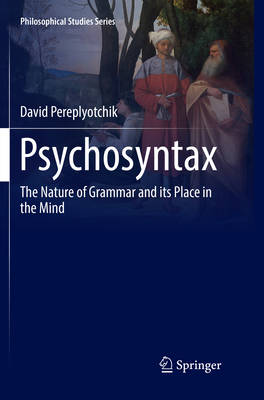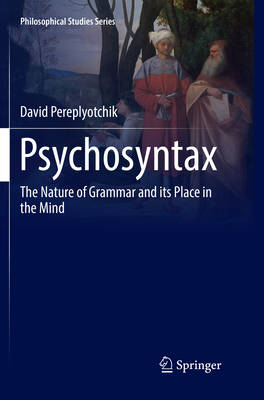
- Afhalen na 1 uur in een winkel met voorraad
- Gratis thuislevering in België vanaf € 30
- Ruim aanbod met 7 miljoen producten
- Afhalen na 1 uur in een winkel met voorraad
- Gratis thuislevering in België vanaf € 30
- Ruim aanbod met 7 miljoen producten
Zoeken
€ 106,95
+ 213 punten
Uitvoering
Omschrijving
Nevertheless, as the book shows, a detailed examination of the relevant psycholinguistic results and computational models does support the claim that the theoretical constructs of formal linguistics are operative in real-time language comprehension.
Specificaties
Betrokkenen
- Auteur(s):
- Uitgeverij:
Inhoud
- Aantal bladzijden:
- 302
- Taal:
- Engels
- Reeks:
- Reeksnummer:
- nr. 129
Eigenschappen
- Productcode (EAN):
- 9783319867694
- Verschijningsdatum:
- 22/08/2018
- Uitvoering:
- Paperback
- Afmetingen:
- 155 mm x 17 mm
- Gewicht:
- 504 g

Alleen bij Standaard Boekhandel
+ 213 punten op je klantenkaart van Standaard Boekhandel
Beoordelingen
We publiceren alleen reviews die voldoen aan de voorwaarden voor reviews. Bekijk onze voorwaarden voor reviews.







